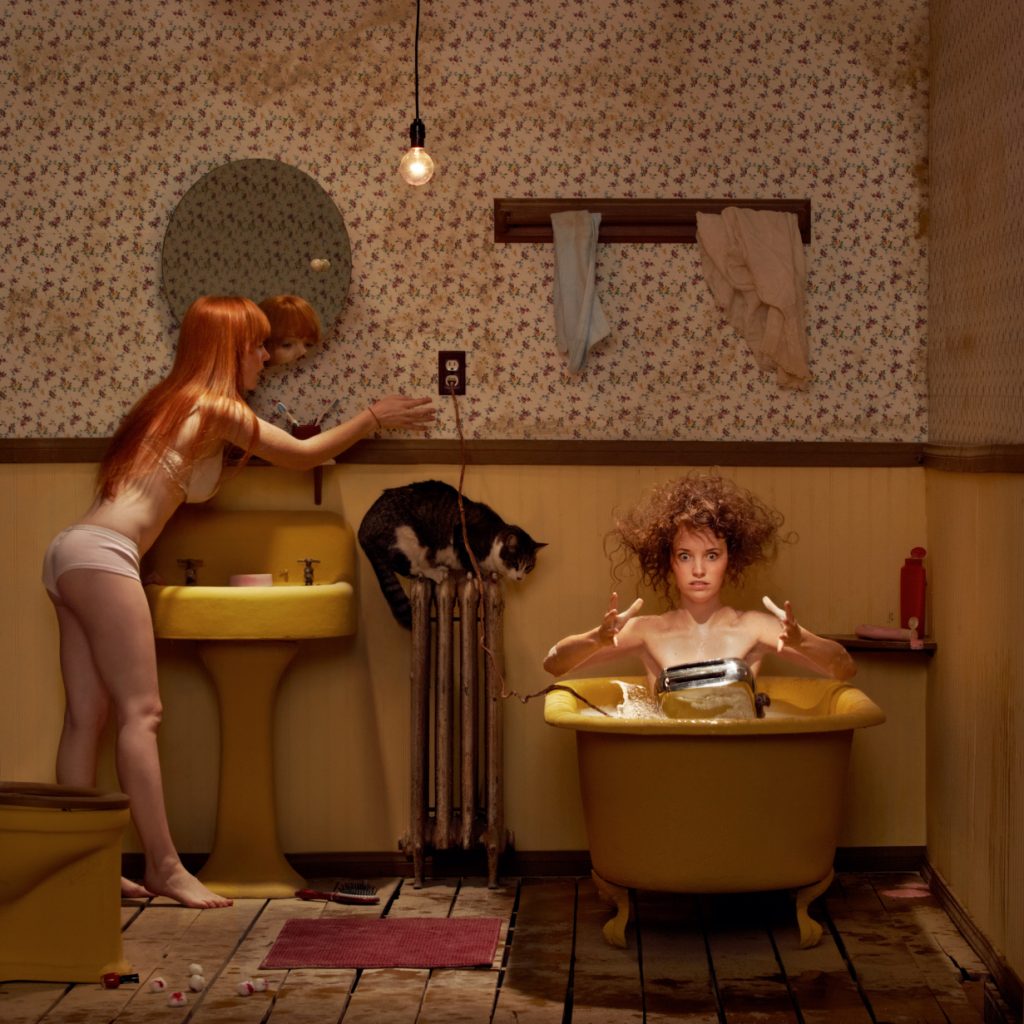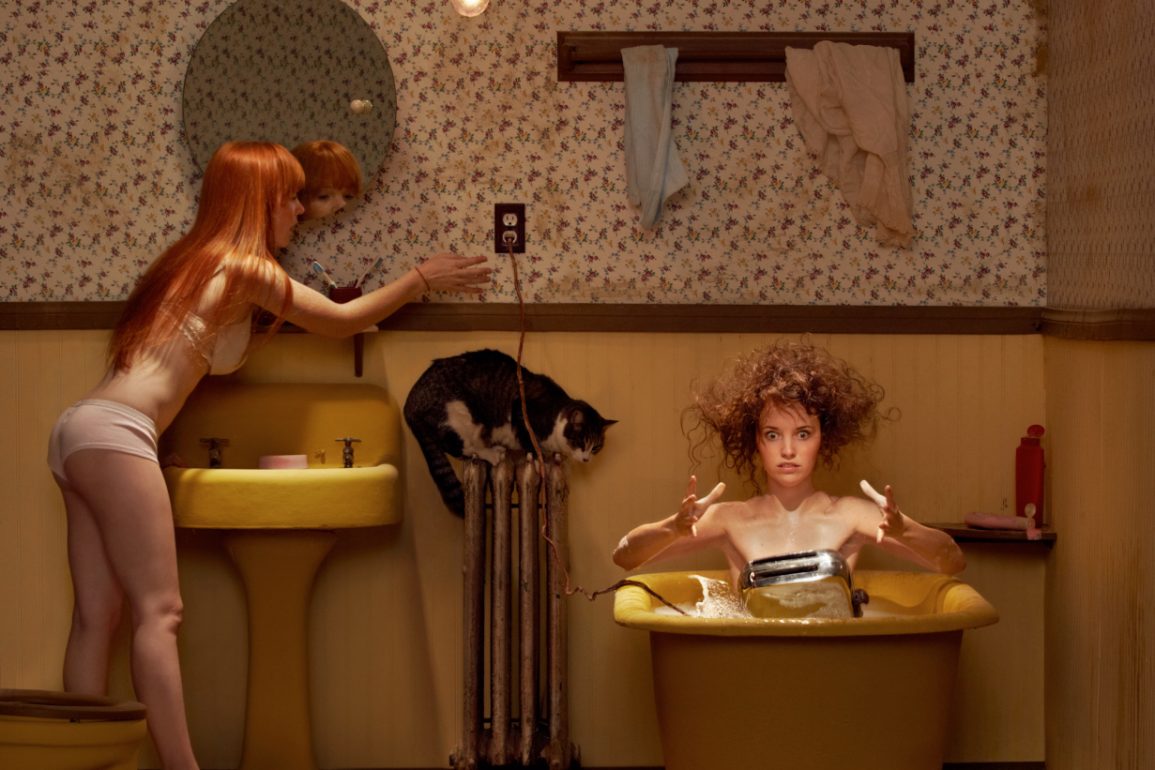It’s hard to believe Ezra Magazine has been operating for nearly eight years. We have interviewed some truly magnificent people, each with their own ideas, inspirations and of course, words of advice. To recapture the essence of Ezra Magazine here is a list of some of the best quotes from our interviewees since 2013.
On overcoming obstacles in life
“Ha, how did I? I still go through that every day. You just keep doing what you’re doing, and people start turning their heads at you. “Wow, he did that at sixteen?!” But that being your main motivation will most likely be reckless. Proving people wrong is an awesome feeling, but stay true to why you’re doing what you’re doing. As long as you’re learning, growing, and staying persistent, it doesn’t matter whether people take you seriously or not,” Adorian Deck, founder of Decked Media in 2013.
Creator’s speaking about their work and finding their passions
“Someone asked why in ‘We Are Meant for Each Other’ the lady has a smaller fish “brain”, when it is known that women are smarter than men. I didn’t know what to say to them to be honest, but it is always amazing how people interpret the images in different ways and take away different meanings from them – it is really wonderful,” Photographer Ronen Goldman in 2013.
“Very often I plan my work. In the early days, there was a lot of trial and error, but I soon learned the importance of a planned project. There is always a reason why I do a piece of work, both personally and commercially. The work has to have reason and purpose, and often, the work has to connect to the environment,” Photographer Michael Bosanko in 2013.
“I haven’t done any (acting) for a while, at one point I was doing both, but I got so busy with Years & Years I took some time off. I will definitely consider it I guess, but it doesn’t feel the place to right now. The biggest difference (between performing music on stage and acting) is having the script and having someone tell you what to do (laughs). With film and TV it doesn’t feel like acting and creative, you’re doing someone else’s work, you’re positioned for cameras and it loses the immediacy of it all. Performing in front of a crowd like in a play is a little different as you’re putting on a character, but there are still layers between you and the audience. With getting to write your own music and be able to do it live, it’s very addictive. It’s immediate and it just feels like it’s my own story. Every night is different.” Singer and frontman for Years & Years, Olly Alexander in 2015.
“I think what’s so interesting is to work on something that you own, that you are in control (of). You know, there is no one above me or us that say, “Report this story,” or “do it this way.” And so when you’re making all of the choices there’s a remarkable amount of stress that comes with that, but that freedom to pursue stories that you’re curious about is so wonderful. And I think that’s what makes the work so enjoyable, is that we’re telling stories that interest us, that our bar for a good story, is a story that we’re curious about. And so, that to me and being able to work on a show that has that as the bar of what we’re going to put out, is so nice,” Host of ‘Criminal’ podcast Phoebe Judge in 2018.
“I think it is important to me to write lyrics that come from the heart and express myself in my music. I am a person who keeps things locked up but via music I do open up. Other people may talk to their friends and parents, but I’d rather talk through my music and it’s very therapeutic for me. In terms of my productions it makes me feel good to craft a great production for a song and I like to express myself there as well. I think as a person it relaxes me, it chills me out and makes me feel numb about situations I have been through,” Singer John Newman in 2013.
” “I am really critical, as I touched on earlier when discussing the recording process, and am never happy with the narration. It’s tough to listen to the sound of your own voice, I think most people struggle with that, so I really rely on the feedback of the rest of the Casefile team. I trust their judgement – without it, I’d probably never get another episode out as I’d never be happy with how it sounds,” the Anonymous Host of Casefile in 2019.
“Creativity is therapeutic for me, and it connects me to my past and upbringing. I can get lost in a drawing or painting session for six or seven hours, without even leaving my seat. It is all-consuming, and clearly fulfills a deep biological need,” Architect and author Megan Padalecki in 2015.
“Yes, the differences are as wide and varied. In many first-world cities, the people are jaded and very conscious of the camera. Los Angeles may be one of the toughest to street shoot because of the over-sensitivity to the paparazzi and because of the city and culture itself, there is no life on the streets. It all takes place indoors and inside of cars. New York is also very jaded but the sheer density and brazen openness of New Yorkers makes it a target rich environment.
Islamic and Arabic culture make it very tough to photograph devout Muslims and women and it is a challenge to take candid portraits. Each city and culture is different and I adapt to each environment. Some places require you to ask permission first which of course, changes what you are shooting. Other places are completely oblivious to the camera. Cubans were the most open people to having their photos taken. It is a street shooters paradise. There is a reason why everyone goes there to shoot,” Documentary Photographer Doug Kim in 2013.

On life advice
“…don’t be afraid, don’t be lazy, have fun,” Photographer Ryan Schude in 2013.
“Don’t get me started. From the first page to the last, I would change more things than you could count. There are a few glaring examples of decisions I would reconsider, but I think that’s a good thing in the end. It’s the best I could do at that point in time…If you’re not looking back with a bit of embarrassment, it means you’re not ready to grow and write something better,” Author of ‘The Book Thief’ Marcus Zusak in 2013.
” I believe that everything happens for a reason, and I also believe that you should learn from every experience that life throws at you,” Owner of At Work? We Walk! Laura Rennie in 2019.
On coming up with ideas
“My process for coming up with ideas can vary depending on the scenario. Sometimes I’m in a beautiful, grungy or unique environment and my mind just envisions something on the spot. On occasion when that happens, I’ll shoot a concept right then and there.
More often, however, I location scout and keep those places in mind to develop ideas later. I’ll often just take some time to listen to music or walk through the woods, and as I let my mind drift it will envision scenes taking place in a variety of environments. That space and time alone to think allows my mind to piece ideas together. Once I have ideas, I do tend to journal them and keep a large list of concepts for future reference. I like giving my favorite concepts time to expand and grow in my mind, which also gives me time to gather resources when needed!” Photographer Rob Woodcox in 2013.
” My experiences and the emotions that stream from them are probably what I use the most. I also use words from books or songs, and proverbs in both Japanese and English. The people I’m around, my art blocks, and struggles. These days I get a lot of my inspiration from Japanese art. To me, it is easily the most beautiful thing in the world,” Photographer Reylia Slaby in 2014.
